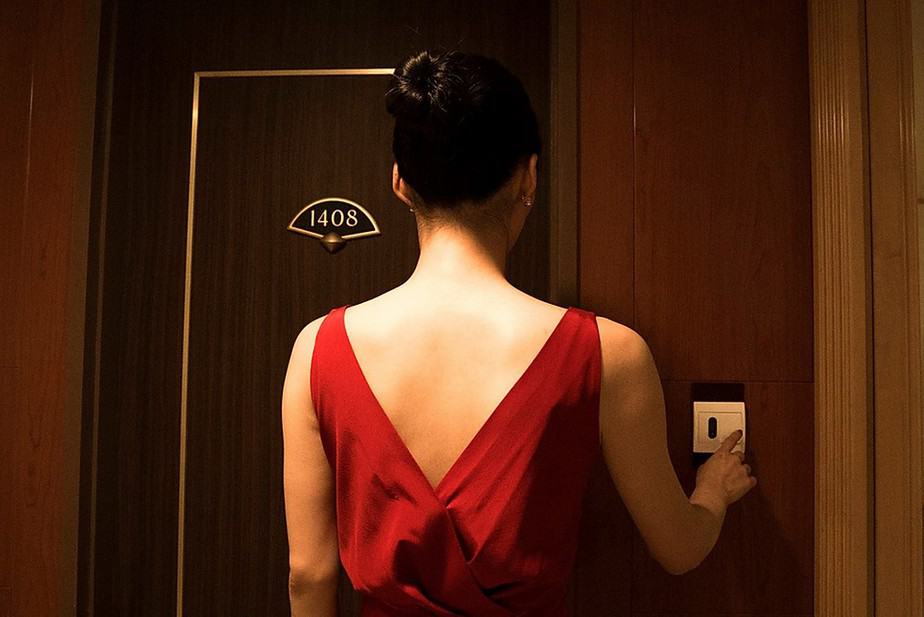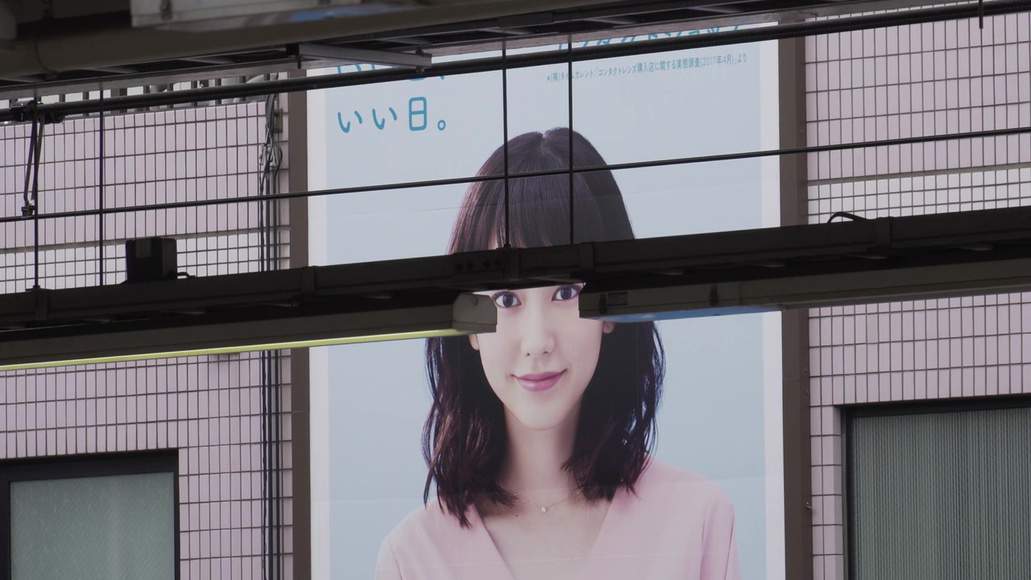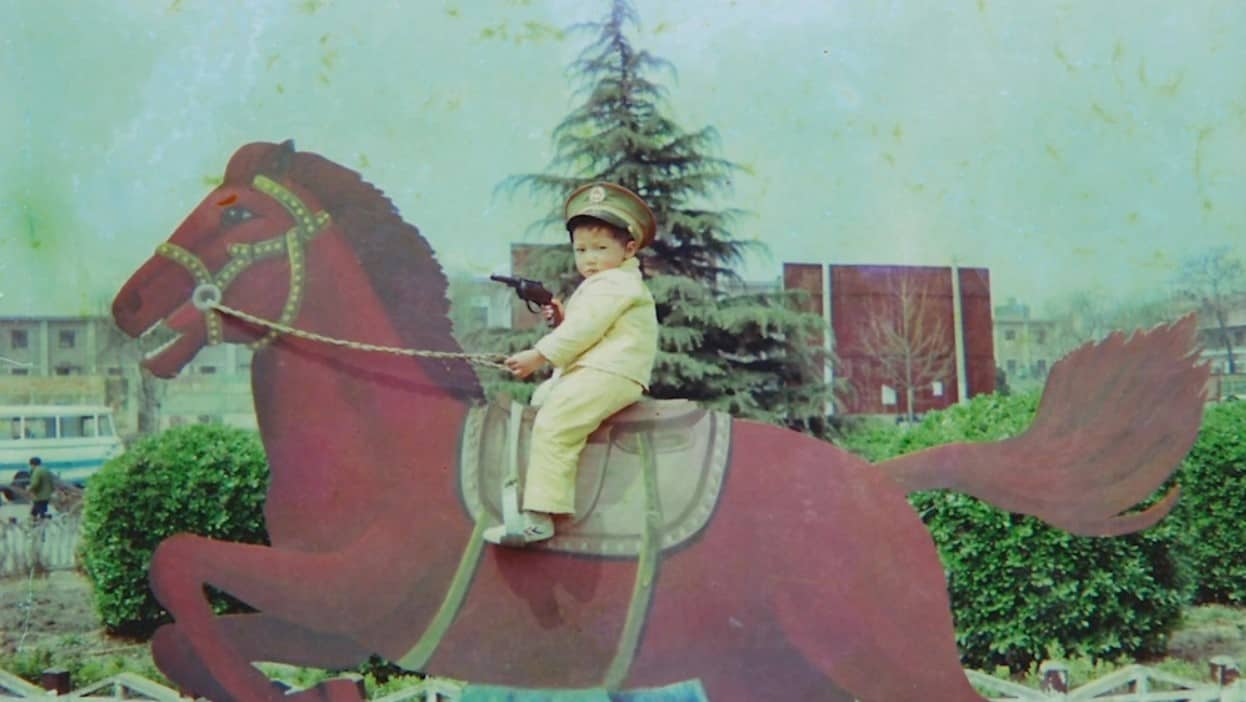Psychological thriller “Nina Wu” by Taiwan-based Burmese writer and director Midi Z, was premiered in the “Un Certain Regard” section of Cannes Film Festival. Midi Z has proven before to be a fine and meticulous storyteller, enriching his narration with nuances, planting small significant details. This personal style well fits “Nina Wu” and its Hitchkockian development.
Nina Wu (Ke-Xi Wu) left Taichung 8 years ago following, like many girls, her dream of an acting career in the big city of Taipei. Despite her efforts, in all those years Nina has collected only a handful of minor roles as extra in indie movies or commercials and she's resorted to moonlighting as a cam-girl. One day, the long-awaited audition arrives; it's for a Cold War era spy-noir movie, “Romance of the Spies” and Nina's agent warns her that she must be prepared to perform a full frontal nudity and explicit sex scenes. His subtle and insidious emotional blackmail eventually succeed and reluctant Nina goes for the audition and gets the part. The production turns out to be demanding and humiliating, and not only for the nudity. In fact, the condescending all-male crew is helmed by a primadonna director who doesn't hesitate to use abusive and physically violent methods to coerce an Oscar performance out of Nina.

Once the film is successfully launched, life for Nina could change dramatically for the best, but some cracks start to appear on her already debilitated psyche. Dreams, hallucinations and a paranoid vision of a mysterious and menacing rival actress (Kimi Hsia) hunt her with increasing frequency, making the reality indistinguishable from her delusional visions. A break from the glossy movie-star life and a visit to the family in her hometown Taichung is of no help to Nina. Her mum is very sick and her dad is loosing the grip with reality due to bankruptcy, suggesting a history of depression running in Nina's upbringing, but most of all, memories of an untainted past and former flame Kiki (Vivian Sung) torment Nina, adding regrets to sorrow.
Rushed back in Taipei by her agent, as the film is scheduled to screen in a major Festival, Nina is still afflict by visions and dreams overlapping and obscuring reality, implying more and more that she is trying to repress a past trauma and the pieces of this psychological drama slowly but inexorably come together.

Released with good timing, after the Harvey Weinstein scandal had broke up and the #MeToo movement had done its job of disrupting a deep rooted status quo of sexual harassment and abuse in the cinema industry, Nina Wu is a brave and heartfelt film, co-written by its own protagonist Ke-Xi Wu, Midi Z's frequent leading actress. It's a film that feels very intimate, as if inspired by personal or very near experience of frustration and hardship. Ke-Xi had started a script about an actress tribulations some years ago and decided to re-structure it and complete it in the wake of the movement and submitted to a very positively surprised Midi Z.
The film is indeed centered on the titular character and Wu's performance is the driving force here. Her unconscious self is sucking up her painful memories, but at the same time those same memories are dangerously pushing to break free, making her slow descend into the black hole within herself, exponentially unsettling.
Interestingly, Nina shows her vulnerability from the very beginning, even before her job in “Romance of the Spies” portraying herself as a woman already drained by the previous years of struggle for equality and respect in her unsuccessful acting career attempts. It is certainly a general j'accuse to the whole industry, plagued by a widespread inequality and patriarchal prejudice, not by just a single rotten apple.

Nina's glossy and highly stylised Taipei life on the set and as a successful moviestar is in striking contrast with her hometown life and her old folks. The episode of Nina's visit to her family at 2/3 of the film feels like a discordant note in the whole; it purposely highlights the toxic environment in which Nina has gradually nestled and the strings that keep her there. However, the episode's excessive length risks to break the flow and dilute a bit the arc of Nina's breakdown.
Stylistically “Nina Wu” is an eye candy, beautiful to watch and impossibly cool, and it's not just an effect of the fashionable set; Midi Z has the ability to find extreme beauty even when narrating about abused factory workers. The maddening red is used by cinematographer Florian Zinke with lavish extravaganza to outline Wu's strong angular features and her ardent performance. The precise camerawork supported by Lim Giong's unsettling electronic and strings score, traps the protagonist inside the cinematic frame in the same way her own alienation does.
“Nina Wu” gives a very tangible shape to the harmful male gaze and power play, making it an uncomfortable and cringing watch at times, and certainly a forceful depiction of their effects on the victims.















